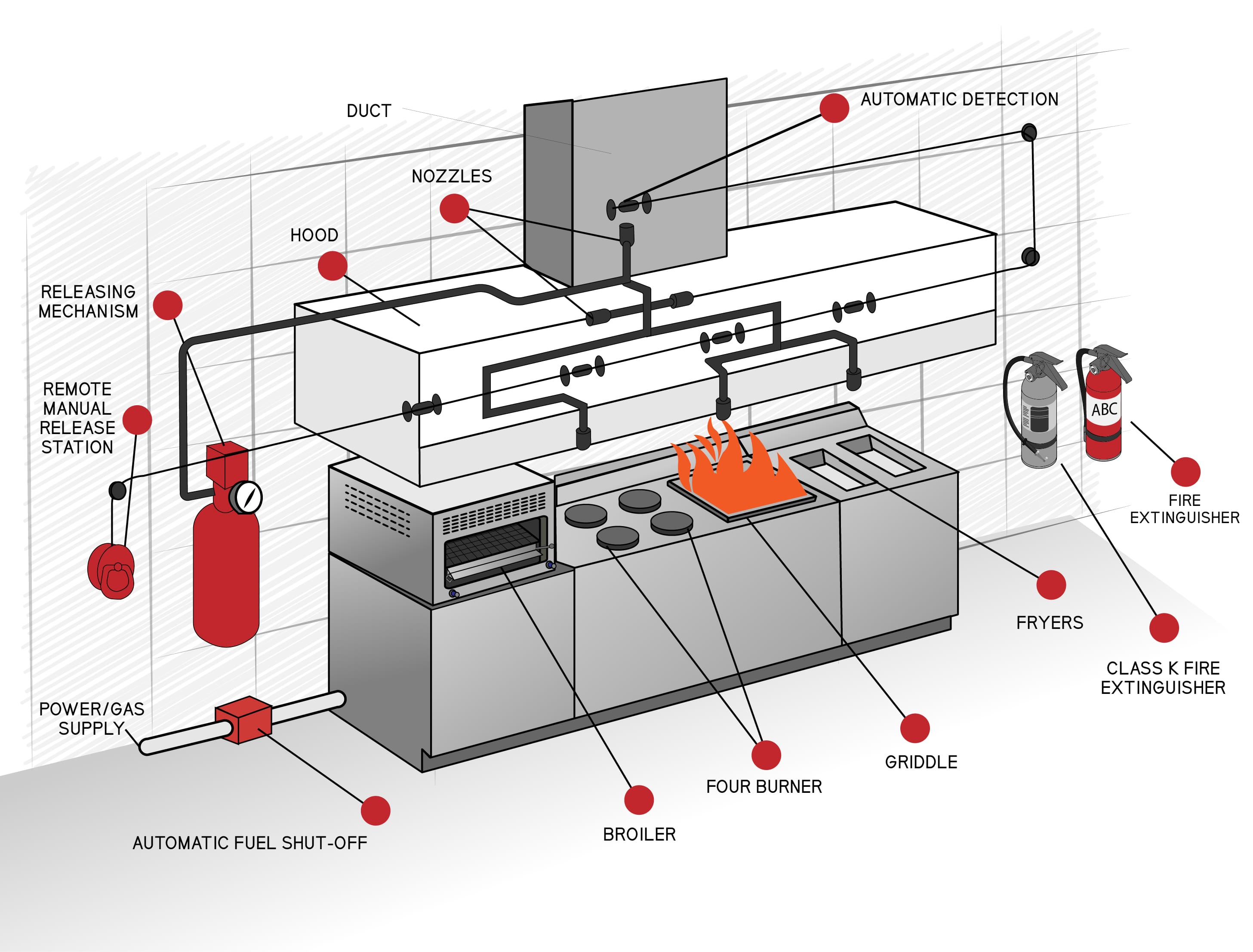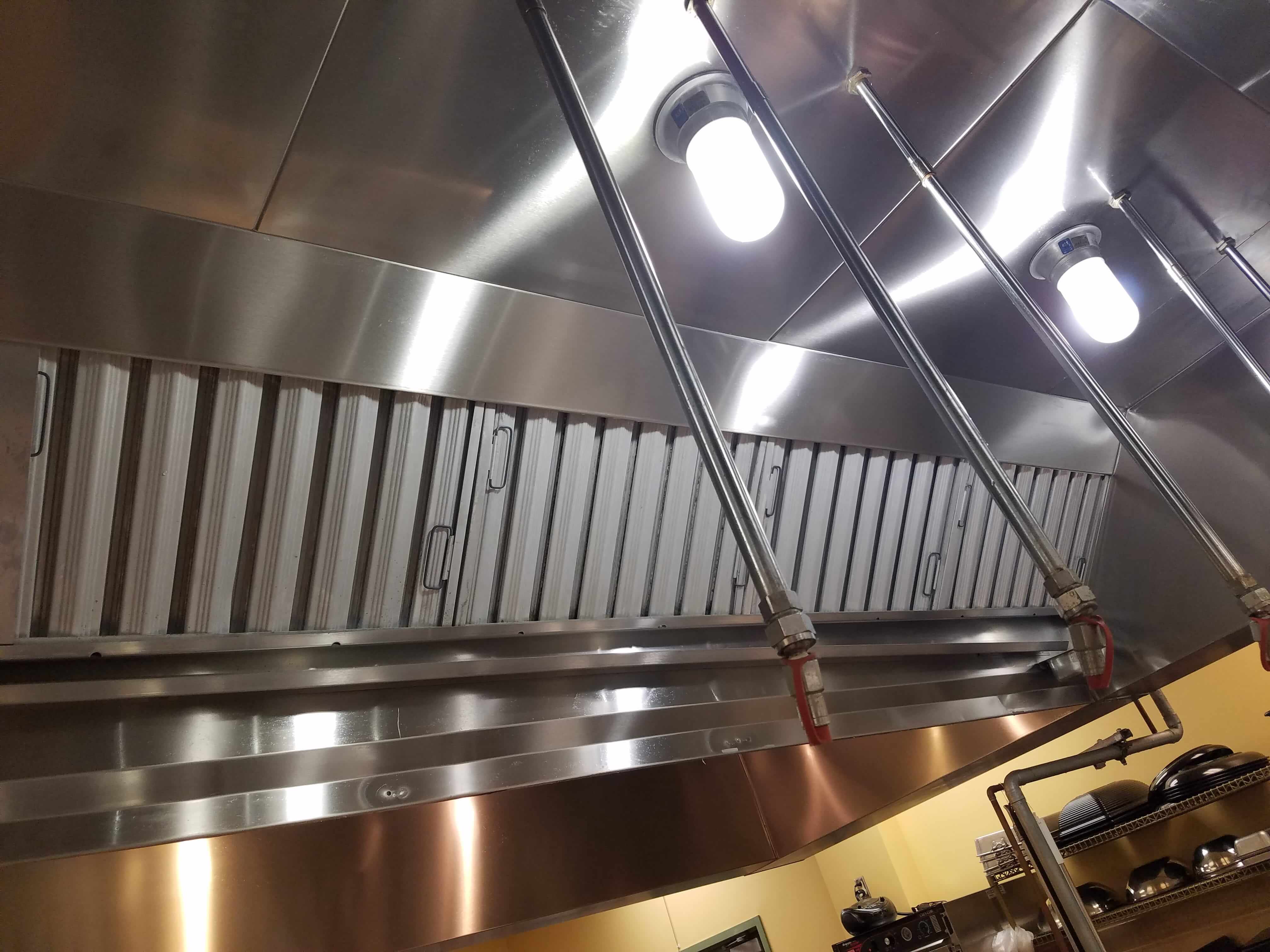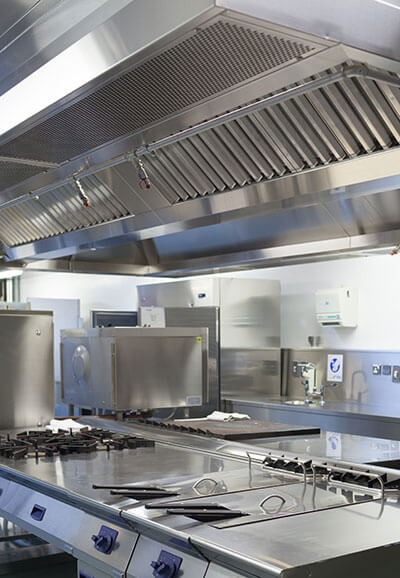
The Importance of Kitchen Fire Suppression Systems and Hood Cleaning: A Comprehensive Guide
Introduction
A commercial kitchen is often a fast-paced, high-pressure environment where culinary professionals work with an array of cooking appliances and open flames. As a result, the risk of fires is significantly higher than in other areas of a building. To protect your kitchen, employees, and customers, it is essential to implement a proper fire suppression system and regular hood cleaning. In this comprehensive guide, we will cover the importance of kitchen fire suppression systems and hood cleaning, highlighting the key components, maintenance, and best practices.
The Importance of Kitchen Fire Suppression Systems
A kitchen fire suppression system is designed to detect and extinguish fires in a commercial kitchen. These systems are crucial for preventing small fires from escalating into larger, more destructive blazes. A well-maintained fire suppression system offers several benefits, including:
- Ensuring safety: A properly functioning fire suppression system is vital for the safety of your employees and customers. By quickly detecting and extinguishing fires, these systems minimize the potential for injury or even death.
- Protecting property: Fires can cause significant damage to your kitchen, equipment, and building. A robust fire suppression system can help protect your property and save you from costly repairs or replacements.
- Compliance with regulations: Local and national fire codes require commercial kitchens to have an approved and well-maintained fire suppression system. Non-compliance can result in fines, business closures, or worse, legal liability in the event of a fire.
- Reducing downtime: A fire in your kitchen can disrupt your business operations and result in lost revenue. Investing in a reliable fire suppression system can reduce downtime and help you get back to business faster after an incident.
Key Components of Kitchen Fire Suppression Systems
Kitchen fire suppression systems typically consist of several components that work together to detect and extinguish fires. These components include:
- Detection devices: These are sensors that detect heat or smoke, and they are crucial for identifying the presence of a fire. Common types of detection devices include heat detectors, smoke detectors, and flame detectors.
- Control panel: This is the brain of the system, which receives signals from the detection devices and activates the necessary components to suppress the fire. The control panel also communicates with other building systems, such as fire alarms and HVAC systems, to ensure a coordinated response to a fire.
- Suppression agent: This is the substance used to extinguish the fire. In commercial kitchens, the most common suppression agents are wet chemicals, which are specifically designed to extinguish grease and oil fires. These chemicals work by cooling the fire and forming a foam layer that smothers the flames and prevents re-ignition.
- Piping and nozzles: The suppression agent is delivered to the fire through a network of pipes and nozzles. These components must be carefully designed and installed to ensure that the agent reaches the fire quickly and effectively.
- Manual activation: Most fire suppression systems include a manual activation mechanism, allowing staff members to activate the system in case the automatic detection fails or if a fire is noticed before the system is triggered.
- You must also have a serviced fire extinguisher for use incase there is a little flame left over after the suppression system activates.
The Importance of Hood Cleaning
Hood cleaning is a critical aspect of maintaining your kitchen’s fire safety. Grease and other flammable substances can accumulate inside the hood and ductwork, creating a significant fire hazard. Regular hood cleaning can help mitigate this risk by:
- Reducing the fuel load: Grease accumulation in the hood and ductwork can act as fuel, feeding a fire and allowing it to spread rapidly. Regular cleaning removes this buildup, reducing the risk of a fire starting or spreading.
- Enhancing the efficiency of your fire suppression system: Grease and debris accumulation can hinder the performance of your fire suppression system. A dirty hood can obstruct nozzles, preventing the suppression agent from reaching the fire. Regular hood cleaning ensures that your system operates effectively when needed.
- Improving air quality and ventilation: A clean hood system allows for better airflow and ventilation, reducing the risk of smoke and fumes affecting the air quality in your kitchen. Improved air quality can enhance the overall work environment for your staff and contribute to better hygiene.
- Complying with fire code requirements: Local and national fire codes typically require commercial kitchens to perform regular hood cleaning. Non-compliance can result in fines, business closures, or increased liability in the event of a fire.
- Prolonging the life of your equipment: Regular hood cleaning can help extend the life of your kitchen equipment by reducing the wear and tear caused by grease and debris buildup.
Best Practices for Kitchen Hood Cleaning
To ensure that your kitchen hood system remains clean and safe, follow these best practices:
- Schedule regular cleanings: The frequency of hood cleaning depends on the type and volume of cooking performed in your kitchen. The National Fire Protection Association (NFPA) provides guidelines for cleaning frequency, ranging from monthly to annually. Consult your local fire code requirements and establish a regular cleaning schedule based on your kitchen’s needs.
- Hire a professional hood cleaning service: Professional hood cleaning services have the necessary expertise, equipment, and certifications to clean your hood system thoroughly and in compliance with fire codes. DIY cleaning may not be sufficient to meet regulatory requirements and can be time-consuming and labor-intensive.
- Inspect your hood system regularly: In addition to scheduled cleanings, perform regular visual inspections of your hood system. Look for signs of grease buildup, damaged components, or other issues that may compromise the system’s effectiveness.
- Train your staff: Educate your staff on the importance of hood cleaning and fire safety. Ensure that they understand the proper procedures for cleaning grease filters, and encourage them to report any concerns or issues with the hood system.
- Keep records: Maintain documentation of all hood cleaning activities, including the date, service provider, and any issues identified and resolved during the cleaning process. These records can be essential for demonstrating compliance with fire code requirements and maintaining your kitchen’s fire safety.
Conclusion
A well-maintained kitchen fire suppression system and regular hood cleaning are crucial for ensuring the safety of your employees, customers, and property. By understanding the importance of these systems, their key components, and best practices for maintenance, you can take the necessary steps to safeguard your kitchen from fire hazards. Invest in a reliable fire suppression system and establish a regular hood cleaning schedule to protect your business and minimize the risk of devastating fires.


